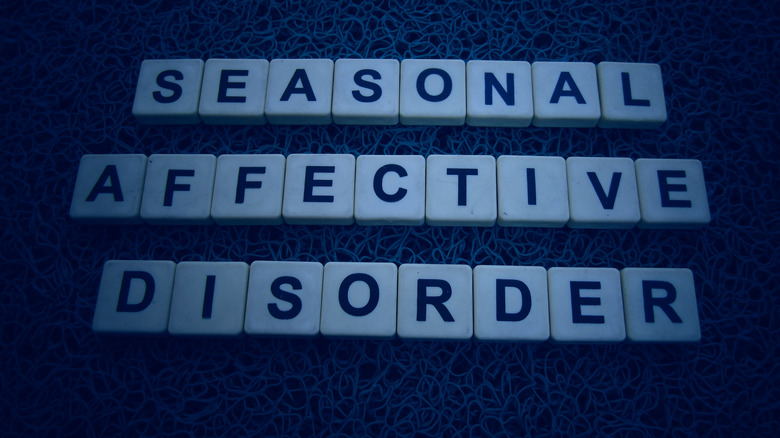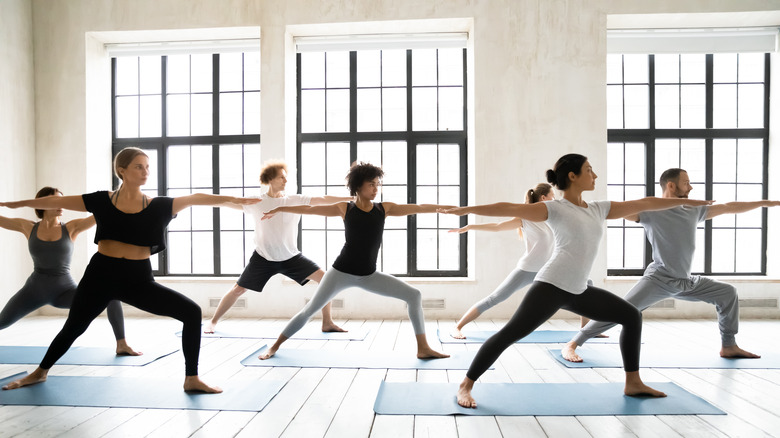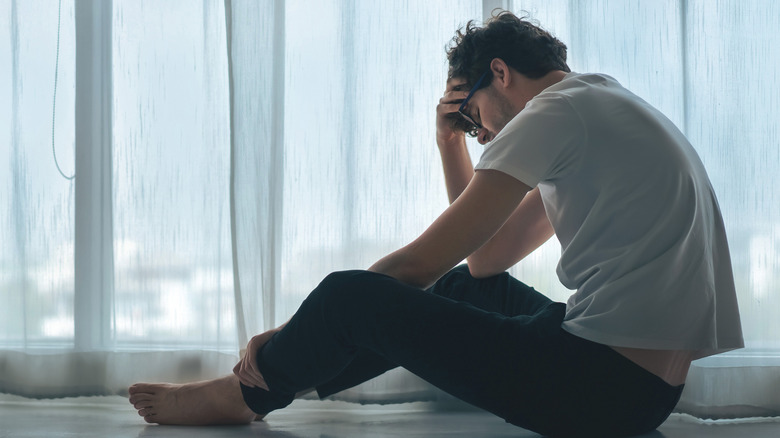The Easiest Ways To Combat Seasonal Depression
Along with that extra hour of sleep we enjoyed this past weekend, Daylight Saving Time brings with it other "extra," that may not be as welcomed. Dr. Kannan Ramar, professor of medicine at the Center for Sleep Medicine at the Mayo Clinic, told CNN that you may wake up more refreshed after that extra hour of sleep, which might motivate you to practice better sleep habits. However, you also could fall into the category of people with seasonal affective disorder (SAD).
Unfortunately, the extra number of dark hours and cold temperatures have a negative impact on many people. Verywell Mind reports that a decrease in sunlight can impact a person's mental health, especially with the lingering pandemic conditions. The natural sleep cycle, or circadian rhythm, is disrupted when sunlight is limited. This causes serotonin levels to drop and melatonin levels to rise, which, according to research published in the Depression Research and Treatment journal, leads to more fatigue and depression.
Psychiatrist Dr. Julian Lagoy told Verywell Mind that SAD is more prominent in areas where the sun shines for less time, and states "...we are reliant on sunlight both for our physical and our mental health."
Natural ways to increase happiness during winter
Dr. Arlene Malinowski has personally experienced seasonal affective disorder, and shares with Everyday Health that filling the colder months with social activities helps her cope. "Proactive is the way to go," Dr. Malinowski told the news source.
Psychologist Dr. Kim Burgess told Everyday Health that multiple studies show an association between social isolation and depression, and with the COVID-19 lockdowns, many people are finding themselves lonely. "When the winter weather makes it super cold to be outside or unsafe to drive, we can FaceTime with friends and extended family members or set up Zoom calls with them," Dr. Burgess told Everyday Health.
The Cleveland Clinic recommends daily exercise to fight the winter blues. "Moving your body will compete with that tendency to be sluggish and can produce good brain chemistry," psychologist Scott Bea told the Cleveland Clinic. Indoor fitness activities include cycling sessions, yoga, and barre classes, but you can also hit the gym and do your own thing.
Sleep physician and psychiatrist Dr. Bhanu Prakash Kolla told CNN that exposing yourself to as much natural light as possible can also help combat SAD. This helps the brain release more serotonin, the hormone that increases happiness.
When it's time to seek help
There are times when the winter blues become more serious. If you are experiencing extended depressive symptoms that don't improve with the above suggestions, it's time to contact your doctor for additional support. Symptoms include loss of interest in activities once enjoyed, severe change in appetite, sleeping too much or too little, and feelings of hopelessness (via American Psychiatric Association).
According to the Mayo Clinic, your doctor may recommend light therapy, which involves sitting in front of a light box for a specified time daily. A systematic review of 23 randomized controlled trials published in the American Journal of Psychiatry suggests that light box therapy, or phototherapy, is an effective treatment for seasonal affective disorder. According to the American Psychological Association, seeing a psychologist and practicing psychotherapy can help those with SAD. Psychologists can also assist with implementing coping strategies, changing unhealthy behaviors, and managing emotions.
If you are struggling with SAD and all other therapies fail, your doctor may suggest medication, which has been shown to help combat depression, but can cause many side effects (via Health). Your doctor can help you navigate through treatment options to find what works best for you.
If you feel hopeless, or have suicidal thoughts, please call the National Suicide Prevention Lifeline at 1-800-273-8255.



